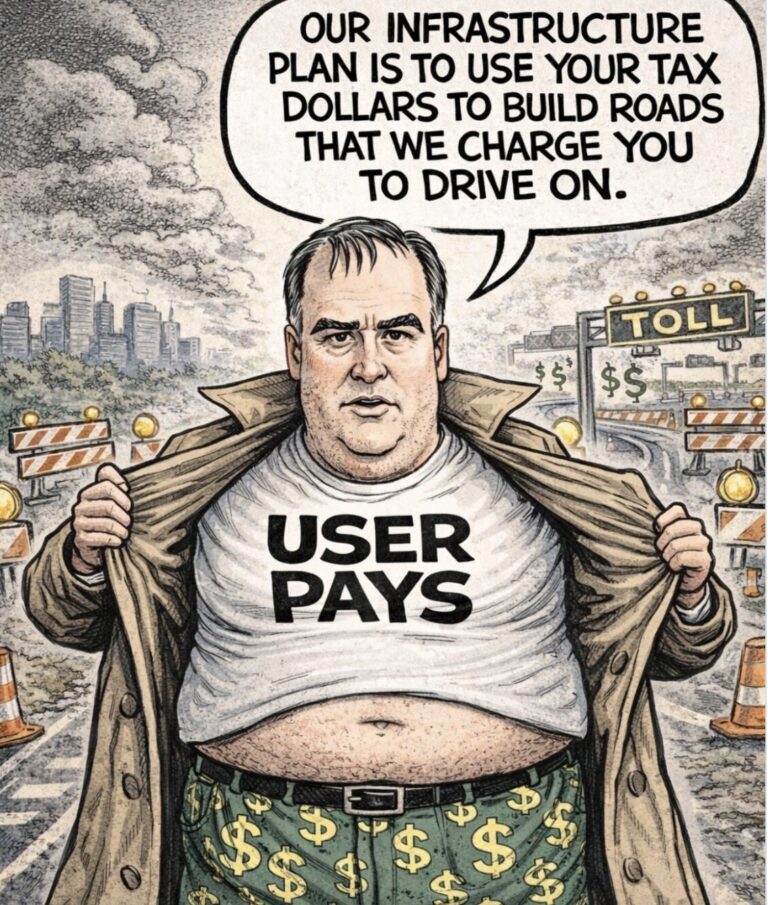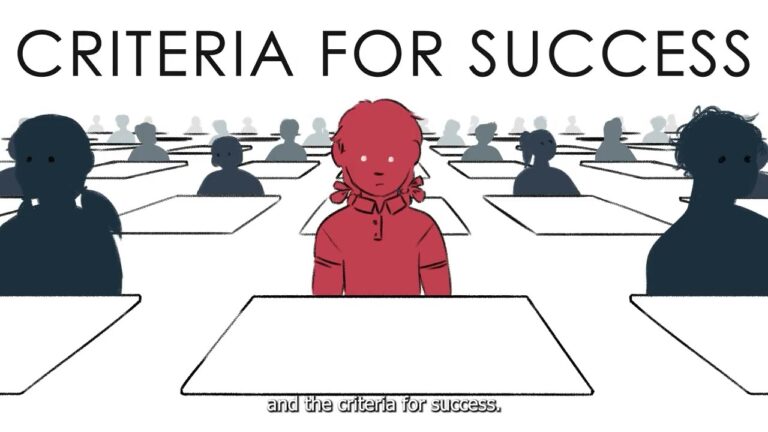MUST READ: What is to become of our housing post Covid-19?
We need to be wary of the law of unintended consequences as we contemplate what our post-Covid-19 future might look like. Many commentators are talking up the forthcoming recession as being the worst since the great depression while others are suggesting that we will become kinder and less materialist as a consequence of the threat and disruption we have faced.
Amidst such speculation two things are certain to me – our Government is spending up a storm and capitalism will prevail. These two certainties suggest to me a number of implications which might guide us in where we might be in a year or two from now.
As Rahm Emanuel, Obama’s former Chief of Staff once said ‘never let a serious crisis go to waste’ and there is ample evidence of such crisis opportunism across the political spectrum. Two examples are Federated Farmers’ call for the Government to call a halt to its environmental reforms.and TOP’s renewed call for a universal basic income.
The crisis narrative may soon extend to housing once the extent of job losses and business failures resulting from the Covid-19 shutdown become apparent. It will be a great shame if such a narrative is allowed to become entrenched for at least two reasons.
We already have a housing crisis for poor families and individuals and a shift in this narrative to a housing crisis for the middle class not only risks ignoring the homeless and poorly housed but could make things worse for them. The other reason a post-Covid-19 crisis narrative is not helpful for housing is because this might otherwise be an opportunity to correct some of the market and policy failures which have contributed to the pre-Covid-19 housing crisis.
For example, it seems likely that rents and house values will fall over the next six to 12 months at least. This can’t be a bad thing for tenants and first-home buyers.
How far house prices will fall remains to be seen although we probably should look to Australia for a guide to what might happen. Australia’s housing markets and especially those in Melbourne and Sydney are even more vulnerable than New Zealand’s. House values as a proportion of GDP in Australia reached 342% at the end of 2019 while they were at 282% in New Zealand. Household debt as a share of GDP was 124% in Australia at that time while it was almost 100% in New Zealand. A recent Guardian article suggested that house prices could fall 20% in Australia although it noted that auction clearance rates have remained buoyant in Melbourne and Sydney over the past few weeks.
The Australian banks which are exposed to the risks associated with an extended recession and a meltdown in house prices are of course the same Australian banks which dominate New Zealand’s mortgage and other debt markets. It seems unlikely that they will have much regard for New Zealanders’ mortgage stress if they are scrambling to stay afloat back home. For the banks this is literally a house of cards because they cannot afford to push struggling debt ridden home owners and landlords to the wall for risk of a further collapse in house prices and a further fall in the security they have over the rest of their mortgage portfolio.
However, a 20% decline in house prices in Australia and New Zealand shouldn’t be too catastrophic for the banks or most households with mortgages especially given the very low interest rates we have presently. Declines of more than 40% are probably quite dangerous for the whole stability of our financial system.
But this isn’t a free lunch for housing policy because any significant slump in rents and prices will most likely lead to a slump in house building and residential investment. In other words, there is a good chance of a looming housing shortage within two years without some form of government intervention. But what will drive this shortage?
Immigration has buoyed our housing market and has richly rewarded existing home owners with unprecedented capital gains over the past decade or so. Half of the total growth in New Zealand’s population over the past decade – that is around 308,000 people of an increase of 619,000, has been from immigration. This net migration flow of 308,000 people saw a net of almost 170,000 New Zealand citizens leave the country permanently and almost 480,000 citizens from other countries move here on a permanent basis.
This net migration of 308,000 people represents around 100,000 additional houses depending on your assumptions around house occupancy rates. Over the past decade there were almost 240,000 consents for new dwellings issued while Statistics New Zealand estimates that the national housing stock grew by just over 206,000 dwellings.
It would be quite wrong to blame migrants for our housing problems. These problems are due to successive policy failures which range from our unwillingness to tax wealth, our inability to plan for and pay for urban growth, our reluctance to deal to price gouging in the building materials sector and our inability to curb bank lending on over-priced housing.
Many of these failures won’t matter much in the immediate aftermath of Covid-19. Certainly some wealth gains will be wiped out and banks will become far more reluctant to lend to over-geared homebuyers and investors. Depending on the extent and nature of the post-Covid19 recovery. these shifts may only endure for two years however. This will especially be so if we get back to a business as usual world where markets and the owners of capital determine our priorities. In the absence of an alternative vision from Government this seems likely.
In many respects our housing future beyond the middle of 2021 lies in what happens around immigration. While some experts have suggested that we shouldn’t think about any overseas travel for at least 18 months, there will be economic and political pressure to open up our border long before then. The reality is that New Zealand’s growth model has relied on immigration for the last decade or so. This immigration buoyed markets for housing and consumer goods and plugged labour shortages brought about by our aging population. This alternative supply of labour and what at times has appeared to be unchecked employer abuses of migrant labour have helped to depress wages for unskilled workers. For example Government estimates from late 2019 suggest that as many as 242,000 workers, or around 9% of the workforce, are now receiving the statutory minimum wage In 2014 this proportion was just 5%.
Not only will it be difficult, for economic reasons, to turn off the immigration tap – it will be difficult to do so for political reasons as well. While a net of 170,000 New Zealand citizens left New Zealand permanently over the past decade this figure represents the balance of 520,000 leaving and 370,000 returning. Many of these half million or so Kiwis who have left New Zealand and not returned may have a change of heart about their mother country if, or more likely when, the economy of their country of residence moves into recession and they find that their access to income and social assistance is very limited. Australia is the obvious example here. How are New Zealand politicians really going to keep the border closed to tens and perhaps hundreds of thousands of New Zealanders wanting to come home?
If immigration numbers grow even higher over the next one or two years there will be increasing pressure on our housing stock and probably at a time where private sector house building is weak. Many and perhaps most of these returning Kiwis are unlikely to be cashed up so won’t be candidates for the $600,000 + houses/apartments which appears to be as cheaply as the private sector can build and average sized house for.
Most likely Government will come to the rescue. In part this will be because house building is an obvious way of restarting the economy and in part because of the potential for an even greater shortage of affordable and social housing.
It would be a shame however if this rescue was driven by a crisis narrative which shifts the focus from the homeless guy in the street or the family in a motel unit to developers going broke and CBD apartment prices plummeting. Most likely there is actually limited mileage in using house building as an economic lever in part because it appears that the biggest job losses will be in the service sector – especially hospitality, and because such investment may feed into monopoly profits for building materials manufacturers and for land bankers.
A more measured approach to a new housing strategy might include measures across a number of parts of the housing policy kitset including.
- The relaxation of building regulations to make it easier for people to build smaller units or so-called tiny homes for themselves and whanau.
- Strengthening of tenancy laws in favour of tenants including the criminalisation of exploitative landlord practices like bond theft and the renting of the worst of sub-standard accommodation.
- Development of an institutional rental housing option which no longer relies on mom and pop landlords farming capital gains but on purpose built rental housing with sound and efficient institutional frameworks.
- Capital support for the NGO not-for-profit housing sector to begin the build at scale and in particular to develop below market secure tenure rental housing to supplement social housing.
The next few months will probably determine the nature of any recovery driven housing package. As this is designed and rolled out it is important that we learn from the past and don’t simple recreate the system we already have. If the muscle of the state is to be used to rebuild the economy let us hope that the economy we end up with is fairer and less unequal. Our choices around housing policy are critical to such a transformation.
Alan Johnson is the CPAG housing spokesman.







Don’t worry about the housing, there are still going to be 300,000+ temp workers in NZ (and probably more like 1 million people here) that don’t have to adhere to their visa conditions and be employed.
https://www.odt.co.nz/regions/queenstown/relaxed-visas-essential-workers
Q What country imports in unemployment in a housing and jobs crisis?
A NZ, A neoliberal one that wants to increase poverty and competition for jobs and housing for all and destroy the welfare system, by having dysfunctional companies claiming the wages subsidy for their imported workers for takeaways and low level food and tourism outlets, that the current and next generation of Kiwi workers have to pay for!
https://services.workandincome.govt.nz/eps/search
A few examples of the wage subsidy –
AMASIAN LIMITED 5 $32,318.40 16/04/2020
EUROASIA LIMITED 11 $51,859.20 16/04/2020
ASIAN KAI LIMITED 4 $22,459.20 16/04/2020
ASIAN TAKEWAY LTD 3 $18,259.20 16/04/2020
ACTIVE ASIA LIMITED 9 $60,436.80 16/04/2020
SKM SUPERMARKET LIMITED 7 $49,207.20 16/04/2020
METRO SUPERMARKET LIMITED 71 $482,124.00 16/04/2020
Y & Z SUPERMARKET LIMITED 13 $88,555.20 16/04/2020
ALPINE SUPERMARKET LIMITED 37 $245,947.20 16/04/2020
PAIHIA SUPERMARKET LIMITED 13 $74,407.20 16/04/2020
MIN & HWANG 3 $21,088.80 16/04/2020
ZHENAI WANG 3 $21,088.80 16/04/2020
WANG 1979 LTD 4 $28,118.40 16/04/2020
K F & L C WANG 3 $18,259.20 16/04/2020
MR ZHISHU WANG 6 $30,859.20 16/04/2020
KWON THAI 6 $36,518.40 16/04/2020
ITHAI LIMITED 34 $205,051.20 16/04/2020
THAI LAGOON LTD 14 $72,948.00 16/04/2020
SO THAI LIMITED 3 $21,088.80 16/04/2020
JAITHAI LIMITED 9 $57,607.20 16/04/2020
ZINDIA LIMITED 7 $49,207.20 16/04/2020
INDIA GATE LIMITED 4 $25,288.80 16/04/2020
INDIAN SOUL LIMITED 11 $71,666.40 16/04/2020
INDIA TODAY LIMITED 12 $64,548.00 16/04/2020
CURRY INDIA LIMITED 4 $19,629.60 16/04/2020
TOURISMHQ LIMITED 3 $21,088.80 16/04/2020
GM TOURISM LIMITED 5 $26,659.20 16/04/2020
HY TOURISM LIMITED 7 $49,207.20 16/04/2020
GP TOURISM LIMITED 4 $25,288.80 16/04/2020
AIS TOURISM LIMITED 8 $56,236.80 16/04/2020
KOREANA RESTAURANT 6 $30,859.20 16/04/2020
KOREANA CO. LIMITED 6 $42,177.60 16/04/2020
CALVARY KOREAN CHURCH 3 $18,259.20 16/04/2020
HANSANG KOREAN BBQ LIMITED 3 $21,088.80 16/04/2020
KOREAN NOODLE SHOP LIMITED 4 $25,288.80 16/04/2020
Nice to see NZ taxpayers being bankrupted by mostly low wage sunset industries….
Who knew takeaways were so important to the NZ economy but I guess when ‘chefs’ have been our essential skills for years now, that is a big clue of why we have such poverty and lack of innovation here!
BTW apparently the scheme is full of fraudsters, surprise, surprise!
I hope the IRD investigates every applicant and interviews the ‘workers’ but hey white collar crime is part of NZ’s new MO, and ripping off taxpayers is encouraged, so I doubt it!
Would have been a lot fairer and cheaper and more effective for a decent society, if they had just given the money in a UBI straight to NZ citizens and long term residents as those are the ones whose families will be paying it back, not the plethora of businesses that can be conjured and then removed to create a ponzi or dysfunctional business as a vehicle for visa fraud, and has been going for a long time in NZ!
The problem with housing is not housing but related to NZ wages! You can build more and more houses but if increasingly people can not afford a Kiwibuild affordable house (which apparently represents the non profiteering development and puts an affordable house in NZ at circa $650k)… well many people no longer have a job that pays enough for that house and their job is certainly not secure enough to acquire and maintain a mortgage under NZ’s precariat labour laws.
This is where NZ has gone wrong….
In NZ, workers are considered a cost that should be replaced with cheaper ones at the first opportunity.
Workers are expendable and you can just import in skills shortages from overseas cheaper.
Local workers are so invisible, that they are not even considered in government thinking when the idea is to secure the shareholders profits first, migrant labour second. We have the dole in NZ, right! Aka privatise the profits, socialise the losses, is now NZ only government policy.
The radical brainwashing of Rogernomics thinking, was made possible by our low population that when offshore media, government and officials all combine (while adding in circa 20% of NZ population of migrants in a decades, aka 1 million extra people from countries like China and India and the Phillipines not exactly known for a welfare state or high skill labour). Then make the newcomers vote in 1 year, become NZ citizens in as little as 11 days, access NZ health immediately, and be on welfare in 2 years to overload social services here, it is much easier to brain wash an entire country into a fake reality.
Add in our governments bullying, who publicly call NZ nationals ‘lazy’ and ‘drugged out’ and most recently ‘racist’, it seems NZer’s themselves are increasingly considered a liability in government thinking.
Therefore you only hear government worry about the ‘migrant workers’ exploitation not NZ worker exploitation or foreign students not domestic students. But even talk of migrant exploitation is surface only because at the end of the day the NZ government is signing off the visas and when migrants are caught exploiting others or doing social harm in NZ, they don’t get deported! You can get permanent residency from jail, aka Sroubek.
Pike river, one of our biggest work disasters, where nobody is held to account. Pike River managed to kill 29 miners with no rescue ever attempted, just a nightly PR exercise of how dangerous it was to do a rescue and maybe tomorrow they might do something if overseas company X, Y etc manage to provide them with equipment. Even Russia and China manage to get their miners out when it is dangerous and presumably expect an escape route and equipment to help that on site ready to go.
In NZ under the Pike river example, the workers have to walk out themselves to raise the alarm and there’s nothing in place to save anybody.
In fact sounded like most of the Pike River executives didn’t really know much about mining and even less about safety. They were just placeholder overseers, to cut costs and extract profits from the mines as cheaply as possible in NZ.
NZ is now a first world country, with third world safety standards for big business (the opposite true for small business of course)!
Even our defence force/spy agencies charter has apparently has been changed to protect overseas business interests rather than domestic people here and national interests.
When unions members are advocating nationalising Fletchers (why??? they are a dysfunctional shell of a company that can’t even build an affordable road or house anymore) and bringing more low paid workers (against the opposite mentality of unions all around the world), something has gone very wrong and all NZ thinking seems to end up with the same scenarios, don’t worry about NZ workers and nationals, help overseas shareholders profits first, workers from overseas are more deserving of help from unions, and don’t worry about redundancy pay or any compensation when increasingly workers and companies can be disappeared quicker than Don Brashs’ nuclear free NZ or a Covid whistleblower in China.
Even British Airlines ensured jobs were saved and that the workers were paid 80% of their salaries, unlike Air NZ which sounds like the government package for workers is kinda missing in action. Never mind, business know best and the best use of no strings taxpayers money! Sarcasm.
Air NZ CEO, is ex Walmart, with zero airline experience, (but that’s fine because it’s not about keeping the airline business afloat, it’s about making money any way you can for shareholders!).
In NZ our government gave Air NZ money and loans up to nearly a billion, even though apparently Air NZ have 1.1 billion in cash reserves. Apparently zero government criteria about them laying off staff. Governments first thoughts are propping up the shareholders and the business brand itself, workers come and go, who cares, get some more workers from overseas when Covid is over!
Welcome to NZ a former social democracy which is now an island full of neoliberals working out their next move to take over the entire country and our COL government is totally in awe of neoliberal advice – the origins of which are irrelevant to them, from multinational giants like Google to China Sycophants everywhere in NZ , big business and China, have NZ’s best interests at heart, don’t they?
Look at the photo to work out who is going to get the social housing of the future…
Tenants not surprised over Christchurch housing complex homicide
https://www.stuff.co.nz/national/120088313/tenants-not-surprised-over-christchurch-housing-complex-murder
‘The amount of senior Asian NZer’s is expected to be more than the number of aged Maori and Pacific Islander’s combined within a decade!
“The number of Māori aged 65+ will more than double (from 48,500 to 109,400) between 2018 and 2034, as will the senior Pacific population (from 21,300 to 46,700), while the number of senior Asian New Zealanders will almost triple (from 59,500 to 171,900).’
https://www.nzherald.co.nz/nz/news/article.cfm?c_id=1&objectid=12281479
Questions
Why is our immigration policy deliberately bringing in so many in migrant pensioners, low waged migrant workers, and non income people who will be a burden on the state their entire lives in terms of their low/zero incomes?
Why is our immigration policy deliberately bringing in so many migrant pensioners who also need housing?
Why do migrant pensioners qualify for NZ pensions when they don’t contribute any/or meagre taxes?
Why are we allowing the wage theft of NZ pensions by migrant pensioners when the current workers have to pay for their pensions via Kiwisaver while migrant pensioners get a NZ pension and state/social housing for nothing?
Migrant pensioners never have to work in NZ and pay taxes and if they do, are almost certain by their low level of skills, not bringing in the million of tax payers $$$ in taxes that a NZ pension represents.
Free pensions, free social housing in NZ, no income needed!!! No wonder immigration’s phone is ringing off the hook!!!!
As someone who works in construction, I hope you are right.
Another article that suggests that immigration has nothing to do with our housing shortages and low wage economy.
Keep those woke views going to prop up the offshore banks and supermarkets profits! Sarcasm.
Remember when you thought differently Alan Johnson????
https://thedailyblog.co.nz/2016/10/20/guest-blog-alan-johnson-calling-our-immigration-policy-for-what-it-is/
What is even more interesting is those on the woke side are now brainwashed into agreeing with the neoliberal views, (maybe a handy job at the ministry of environment helps and getting those government grants flowing with pro migration views????)
One of NZ’s issues of immigration, is that in spite of lefties original views on immigration coming to fruition, they are now braying with the neoliberals to keep the immigration tap going!! They have no other ideas. Oh apart from taxing locals more.
No wonder the woke views and neoliberal views fit so perfectly together and NZ is such a mess!
SaveNZ
It might pay to read my article before you claim that I dont link our housing problems with immigration.
In the article I said that immigration bouyed housing markets and that it enriched existing home owners with unprecedented capital gains.
I warned about blaming migrants for this however. This is because it has been the wider policy failure of not planning for the needs of these migrants which is to blame – not the migrants themselves. Call me a woke if you like but to start blaming migrants for our problems is a dangerous tendency as history has shown.
In the blog I am not supporting our migration policy but merely pointing out how we are reliant on high levels of immigration for our so-called economic growth model. I pointed out too that it wont be easy to turn off the immigration tap and that this will likely impact on housing shortages and housing related poverty.
Um,… then the solution is simple. Less immigrants.
Its been said that this country needs a respite from them in such numbers. I agree. Its time to realign our wages to the massive numbers of unemployed of family members who have been here for decades. To employ them FIRST before some other foreigner. Yes foreigner.
And to house those same NZ’ERS who have been here decades before those foreigners. Yes foreigners.
We owe them literally nothing, these foreigners. Yes foreigners.
We do , however , as a people and as a govt owe NZers EVERYTHING before any foreigner. Yes foreigner.
Think about it.
@ Alan Johnson, Thanks for replying and clarifying your points but if you do apportion blame on immigration, then it is so subtle to be invisible.
“It would be quite wrong to blame migrants for our housing problems. These problems are due to successive policy failures which range from our unwillingness to tax wealth, our inability to plan for and pay for urban growth, our reluctance to deal to price gouging in the building materials sector and our inability to curb bank lending on over-priced housing. ”
I don’t blame the migrants for our immigration policy either, but I think the NZ immigration policy has been deliberately changed from the 1990’s onwards, and in the last 6 years has thrown out immigration rules and just operates as a free for all people trafficking ponzi. The NZ immigration policy and how it is being implemented is grossly flawed in and open to abuse.
My concern is that commentators never call the government out on it, creating echo chambers that keep the immigration ponzi rolling and more and more conferences on housing and poverty without anybody bothering to point out the most obvious. NZ is importing in massive demand and that is the biggest issue.
The biggest abuse of NZ immigration policy is to existing workers and beneficiaries in NZ due to the constant undercutting of labour here creating the inability to live a normal life and pay your bills on the decreasing and insecure wages here, and the stretching of welfare and health/education resources amongst more and more people about to claim for them around the world.
My concern is that if the so called ‘left’ commentators are concerned about the government’s mass immigration policy, they are very careful not to write about it (because we all know Pro China and neoliberalism punishes those that do and you will not be getting government funding, a job in government, or any help).
The self suppression and lack of rigorous debate is part of the problem in NZ.
I agree that moving away from lazy immigration will be hard for NZ, but I don’t see any sign of it from the government or any left commentators, of a change in strategy.
It’s all steam ahead for takeaways, neoliberals and dysfunctional construction propped up by NZ taxes and more cheap overseas labour cartels.
This is shown by the governmetn propping up overseas and fake businesses in NZ with the wage subsidy instead of creating a UBI for NZ citizens and long term residents only to combat Covid. The businesses being propped up low wage businesses do not contribute to peoples welfare they are employing more and more working poor from overseas, lowering quality of food and accomodation, or are just scams or business like food that will never be viable long term. (The majority of restaurants eventually go under and it seems local construction is following unable to compete with the cash labour cartels).
No capital gains on property (now technically there are with bright light test) and our zoning (deregulated with unitary plan disaster) have been around for decades and never created the housing and poverty and skills issues that our bizarre immigration policy has created in NZ so quickly. When they are implemented they create more chaos like the SHA congestion from the McMansion towns popping up all around Auckland with one road in and out and non viable public transport!
Our disasterous immigration policy is pushing more poverty and unfairness into people’s lives (from 5000 queuing to get that supermarket job in South Auckland in 2010 (including a doctor) https://www.abc.net.au/news/2010-01-22/5000-queue-for-supermarket-jobs-in-nz/1219128 to Sky city now asking for donations for their sacked staff https://www.stuff.co.nz/business/industries/121105265/coronavirus-skycity-asks-staff-to-donate-salary-into-hardship-fund-to-help-those-it-made-redundant).
We are living in obscenely unfair times and corporate welfare is also a big part of the problem aka Sky City now asking for donations because they don’t pay enough redundancy when in 2017 the CEO of Sky City was earning over 6 million…. are still expecting an annual normalised profit of between $80 million and $100 million in 2020 while of course being free to claim the wage subsidy for their workers.
(and Sky City led the way with importing in migrant chefs coming in, in their hundreds lowering quality and wages in NZ across that sector and creating the precedent ‘Chef’ ponzi).